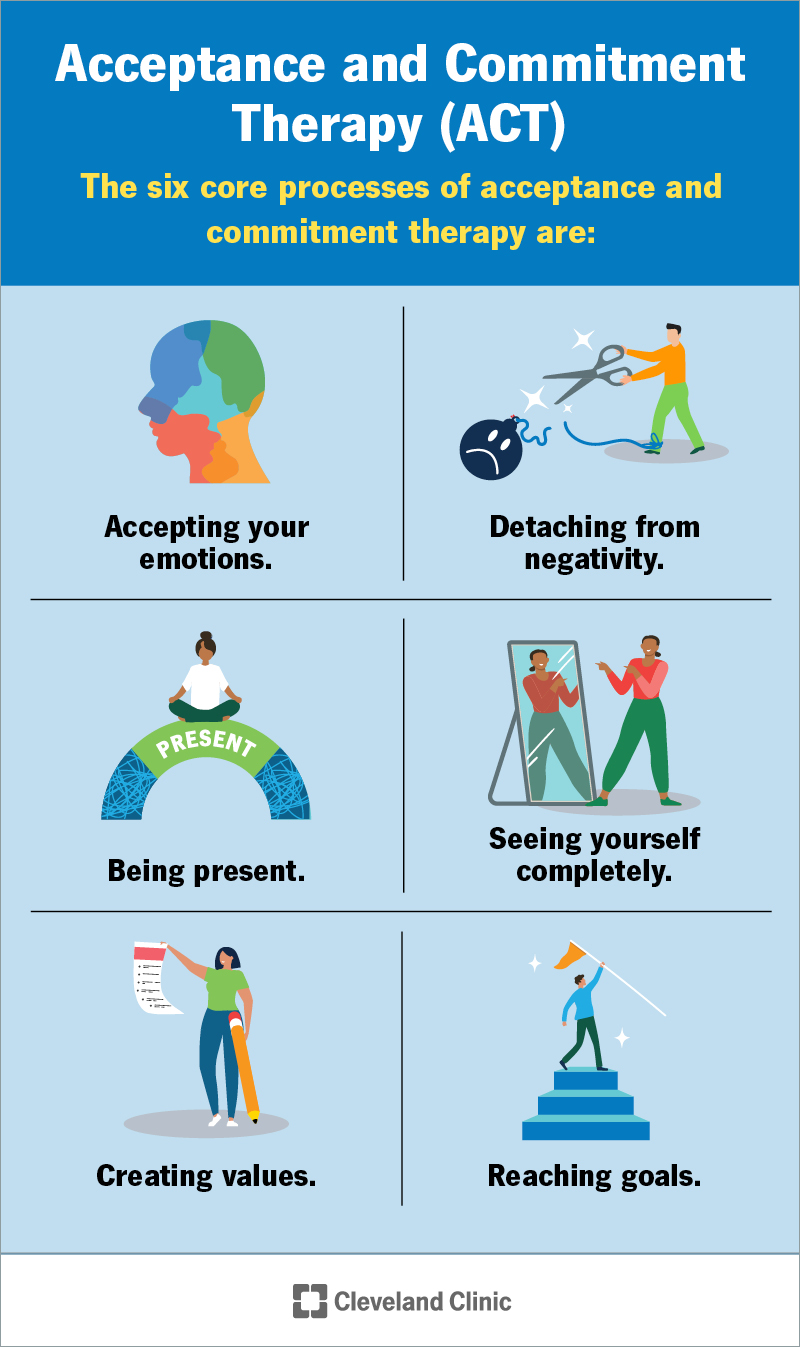Confidential care from a licensed therapist for anxiety in your area
Discovering Different Strategies in Counselling for Anxiety Disorder for Long Lasting Adjustment
When taking on anxiousness problems, it's vital to discover a selection of therapy strategies. Each method provides distinct insights and tools to help you handle your signs and symptoms effectively. You might discover that integrating methods can produce the best results. Comprehending the nuances of these strategies is vital to cultivating enduring change. What if the appropriate mix could release a new degree of psychological well-being for you?
Understanding Anxiousness Conditions: A Brief Overview
Anxiousness conditions, which affect numerous people worldwide, can considerably impact life. You may experience overwhelming feelings of fear or stress that appear unmanageable. These feelings can cause physical signs like an auto racing heart, sweating, and even lightheadedness. Usual kinds of anxiousness conditions include generalised stress and anxiety problem, panic attack, and social anxiety disorder. Each has one-of-a-kind indications, but they all share a propensity to disrupt your regular and relationships.Understanding the origin of your stress and anxiety is vital. It may stem from genetics, mind chemistry, or life experiences. Identifying your triggers can assist you manage your actions much better. It is necessary to bear in mind that you're not alone in this battle. Many individuals deal with comparable challenges, and looking for assistance is a solid step towards feeling better. By finding out about anxiousness conditions, you're currently on the path to understanding and managing your condition a lot more efficiently.
Cognitive-Behavioral Therapy: Testing Adverse Idea Patterns
In Cognitive-Behavioral Treatment, you'll begin by identifying the adverse idea triggers that contribute to your stress and anxiety. As soon as you identify these ideas, you'll deal with changing them with even more favorable alternatives. Together, you'll develop reliable coping strategies to help manage your stress and anxiety in everyday scenarios.
Recognizing Negative Idea Triggers

Recognizing the specific triggers behind your adverse ideas can be crucial in taking care of anxiousness when you come across moments of distress. Start by paying attention to situations that prompt sensations of fear or fear. Is it a crowded area, an upcoming due date, or a conversation with particular individuals? Write these instances in a journal. This will certainly aid you determine patterns in your thinking. Additionally, notification physical feelings that accompany your negative ideas, like a racing heart or rigidity in your breast. By pinpointing these triggers, you gain understanding into what's sustaining your stress and anxiety. Understanding these links is the first action in challenging those thoughts and inevitably gaining back control over your emotional actions.
Replacing Ideas With Positives
Testing unfavorable idea patterns is a necessary step in changing your state of mind and reducing stress and anxiety. You might frequently discover on your own trapped in cycles of self-doubt or tragic thinking. As opposed to allowing these thoughts determine your feelings, technique changing them with sensible alternatives or positive affirmations. For example, when you assume, "I can't handle this," move it to, "I can handle obstacles one step at a time." This easy adjustment can substantially impact your emotional state. Consistently identifying and countering these negative thoughts helps create a healthier interior dialogue. Keep in mind, it requires time and effort, but constantly exercising this technique can result in enduring adjustment, encouraging you to deal with anxiety with renewed self-confidence and resilience.
Structure Coping Techniques Together
Replacing adverse ideas is just the start of handling anxiety efficiently. To produce enduring modification, you need to construct coping approaches that encourage you. Cognitive-Behavioral Therapy (CBT) helps you identify and test those unhelpful thought patterns. With each other, you and your therapist can check out how these ideas effect your feelings and behaviors.Start by developing sensible strategies, like journaling or mindfulness exercises, that allow you to challenge stress and anxiety head-on. When you face your anxieties progressively, you'll discover to respond in different ways.

Mindfulness and Acceptance-Based Approaches: Growing Present-Moment Awareness
As you navigate the complexities of anxiety, integrating mindfulness and acceptance-based approaches can significantly enhance your capability to grow present-moment awareness. By concentrating on the present moment, you'll discover that you can observe your thoughts and feelings without judgment (Counseling services for anxiety). This technique helps you acknowledge your anxiousness without feeling overwhelmed by it.Engaging in mindfulness workouts, such as deep breathing, body scans, or guided meditations, permits you to ground on your own in your current experience. Acceptance-based methods encourage you to accept your feelings instead than combat against them. They lose their power over you.Incorporating these methods into your day-to-day regimen can transform how you react to anxiousness when you approve your sensations. You'll develop durability and discover to browse demanding situations with higher simplicity. Inevitably, cultivating present-moment awareness lays the foundation for enduring adjustment, encouraging you to lead a more satisfying life
Direct Exposure Treatment: Facing Anxieties Gradually
Direct exposure therapy aids you face your concerns in a steady means, making it much less frustrating. You'll find out strategies to deal with anxiety-provoking scenarios action by action, while likewise developing coping techniques to manage your reactions. This approach empowers you to take control and reduce anxiousness with time.
Steady Direct Exposure Methods

When facing anxiousness, slowly challenging your concerns can be a powerful means to gain back control. This technique, called progressive exposure, includes slowly subjecting yourself to the scenarios or objects that cause your anxiety. Start with much less intimidating situations and gradually work your means as much as even more challenging ones. For circumstances, if you hesitate of public talking, you might begin by talking in front of a mirror, after that proceed to sharing thoughts with a close friend, and ultimately resolve a small group. Each action assists desensitize you to the fear, constructing your self-confidence in time. Keep in mind, it's vital to pace yourself and celebrate little victories as you move via this procedure, strengthening your ability to take care of anxiety properly.
Structure Coping Strategies
Building efficient coping methods is essential for managing stress and anxiety, specifically as you challenge your anxieties gradually - Counseling services for anxiety. One powerful method is exposure therapy, where you start by facing your fears in a controlled manner. Begin with less intimidating situations and slowly function your means approximately more difficult situations. This progressive direct exposure assists desensitize you to stress and anxiety sets off, making them less overwhelming.Incorporate relaxation strategies, such as deep breathing or mindfulness, to soothe your mind during exposure. Track your progress, commemorating tiny triumphes along the road to improve your self-confidence. Keep in mind, it's alright to take your time; the goal isn't perfection but steady renovation. By constructing these methods, you'll equip yourself to navigate anxiousness and accept life here much more fully
Psychodynamic Therapy: Uncovering Origin Reasons of Stress And Anxiety
Psychodynamic therapy discovers the subconscious mind, disclosing the source of your anxiety. By analyzing your thoughts, sensations, and previous experiences, this method helps you uncover underlying problems and unsettled problems that might contribute to your current anxiety. You'll collaborate with a specialist to investigate childhood years experiences, connections, and psychological patterns that shape your responses today.As you gain understanding into these much deeper layers of your psyche, you'll begin to recognize just how past occasions influence your existing behavior. This understanding can bring about catharsis, enabling you to refine emotions you could have suppressed.Through the restorative partnership, you can likewise recognize defense devices that may have created in time, offering a clearer course to change. Eventually, psychodynamic treatment outfits you with the tools to resolve your anxiety at its core, advertising lasting improvement in your emotional wellness.
Integrative and Holistic Strategies: Integrating Strategies for Greater Effectiveness
Incorporating various restorative strategies can improve your trip toward handling anxiety more properly. By integrating elements from cognitive-behavioral therapy, mindfulness techniques, and all natural approaches, you can create a customized approach that addresses your one-of-a-kind requirements. As an example, you could utilize cognitive-behavioral strategies to challenge unfavorable thought patterns while integrating mindfulness exercises to ground on your own in the here and now moment.Additionally, discovering alternative techniques such as yoga exercise or meditation can advertise leisure and lower anxiety symptoms. This mix permits you to create better self-awareness and resilience.Experimenting with these diverse techniques can help you find what resonates most with you. Remember, it's about discovering a synergy that works, instead than staying with a solitary technique. This integrative strategy not only uses prompt relief however likewise promotes long-lasting abilities for managing anxiousness, encouraging you to recover control over your life.
The Duty of Support Equipments: Building Resilience Via Link
While it could appear that taking care of stress and anxiety is a singular trip, having a strong support system can play an essential duty in your resilience. Bordering yourself with empathetic good friends, family, or support groups creates a risk-free area where you can freely share your sensations and experiences. You remind on your own that you're not alone in this struggle.These partnerships offer support and can supply sensible coping techniques that have worked for others when you connect with others. It's also an opportunity to acquire perspective; buddies can assist you see circumstances in different ways, reducing sensations of isolation.Moreover, emotional support fosters a sense of belonging, which can greatly relieve anxiousness signs. By leaning on your support group, you can construct durability and take on challenges a lot more successfully. Remember, reaching out for assistance is an indicator of stamina, and it can make all the difference in your journey toward managing stress and anxiety.
Regularly Asked Concerns
What Are the Usual Signs And Symptoms of Anxiousness Conditions?
You might experience restlessness, fatigue, trouble concentrating, irritability, muscular tissue tension, and sleep disturbances. Physical signs and symptoms can consist of rapid heartbeat, sweating, and trembling. Recognizing these signs early can assist you seek proper assistance and therapy.
Just How Lengthy Does Treatment Generally Last for Stress And Anxiety Conditions?
Treatment for anxiousness problems typically lasts anywhere from a few weeks to a number of months. It truly depends upon your private requirements, progression, and the strategies your specialist makes use of to aid you handle your anxiousness effectively.
Can Medication Be Used Alongside Therapy for Anxiety?
Yes, medication can certainly be used alongside therapy for anxiety. Combining both methods usually enhances therapy efficiency, assisting you take care of signs while exploring underlying concerns with counseling (Counseling services for anxiety). Constantly consult your health care supplier for individualized guidance
Exist Self-Help Methods for Managing Anxiousness?
Yes, there are a number of self-help strategies for taking care of stress and anxiety. You can practice mindfulness, involve in routine workout, preserve a balanced diet plan, establish a regular, and use deep breathing techniques to help in reducing stress and anxiety signs efficiently.
How Do I Know if I Required Specialist Aid for Stress And Anxiety?
